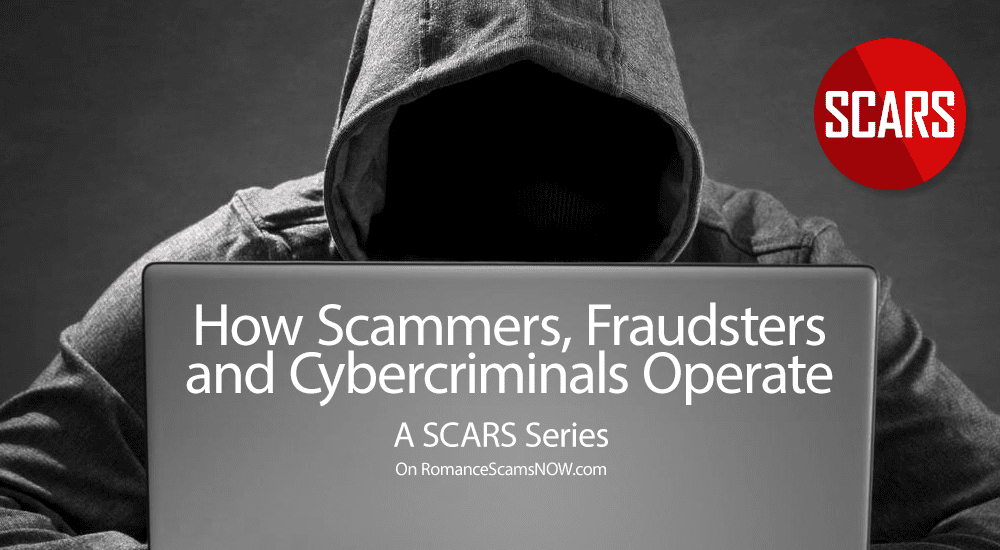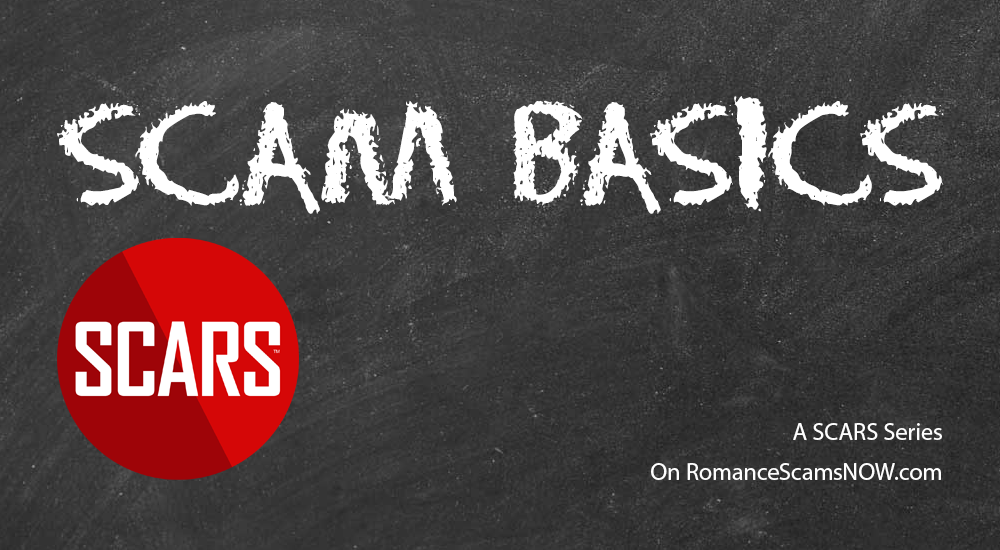
SCARS Institute’s Encyclopedia of Scams™ Published Continuously for 25 Years

Push Payment Scams Are One Of The Fastest Growing Types Of Relationship Scams
What Are Push Payment Scams?
Push payment scams, also known as authorized push payment (APP) scams or bank transfer scams, are a type of fraud where individuals or businesses are tricked into authorizing and sending money to scammers. These scams typically involve social engineering techniques to manipulate victims into believing they are making a legitimate payment, often targeting individuals who use online banking or make electronic transfers.
Push payment scams involve fraudsters convincing victims into sending money to them by impersonating genuine payees (such as suppliers, contractors or even employees).
They typically create a sense of urgency around sending the funds immediately via electronic banking methods, such as Faster Payments Service, BACS/CHAPS, SWIFT Bank Wire Transfer, Direct Debit, Venmo, Zelle, Standing Order, CashApp, and others.
Once the funds have been sent, they cannot be retrieved from the recipient’s account since most banks consider these transactions irretrievable or “irrevocably cleared”.
To prevent becoming a victim of a push payment scam, always verify the authenticity of the request before making any transfer – double check the sender’s contact details match those already held for that entity, ensure the payment amount matches the expected value, and check if there is any reason why payment should need to occur so quickly without proper validation checks already having taken place prior.
How Push Payment Scams/Fraud Work
Here’s how a typical push payment scam may unfold:
- Initial Contact:
Scammers may reach out to victims via various channels, including phone calls, emails, text messages, or even through social media platforms. They often pose as trusted entities such as banks, government agencies, or legitimate businesses. - Building Trust:
Scammers employ various tactics to gain the victim’s trust. They may use sophisticated techniques, such as spoofing phone numbers or email addresses to make it appear as if they are contacting the victim from a reputable source. They might also impersonate someone the victim knows or use personal information obtained through previous data breaches to establish credibility. - Manipulation and Urgency:
Scammers create a sense of urgency or exploit emotions to pressure victims into acting quickly. They may claim that the victim’s account has been compromised, that they owe money, or that they are entitled to a large sum of money. By using persuasive language, they aim to convince victims to make a payment immediately without thoroughly verifying the request. - Payment Instructions:
Once the scammer has gained the victim’s trust and convinced them of the urgency, they provide instructions on how to make the payment. This often involves instructing the victim to transfer funds to a specific bank account, often one controlled by the scammer. They may provide plausible reasons for using an alternative account, such as a temporary technical issue with their usual account. - Victim Initiates Payment:
Believing the request to be genuine, the victim initiates the bank transfer or payment through online banking, wire transfer, or other electronic payment methods. The victim willingly authorizes the transaction, unaware that they are sending money to a scammer. - Loss and Realization:
After the victim realizes they have fallen victim to a scam, it is often too late to recover the funds. Scammers quickly move the funds out of the receiving account, making it difficult to trace or retrieve the money. Victims may face financial losses and emotional distress as a result.
It is important to note that push payment scams exploit the trust and cooperation of the victim, as they willingly authorize the payments. Consequently, recovering the funds can be challenging, and prevention and awareness are crucial in combating these scams.
Each type of relationship scam that results in an authorized push payment will have its own lures, stories, and grooming style. Look for the specific type of scam for more details.
-/ 30 /-
What do you think about this?
Please share your thoughts in a comment below!
LEAVE A COMMENT?
Recent Comments
On Other Articles
- SCARS Institute Editorial Team on Reporting Scams & Interacting With The Police – A Scam Victim’s Checklist [VIDEO]: “Yes, this is a scam. For your own sanity, just block them completely.” Feb 25, 15:37
- on Danielle Delaunay/Danielle Genevieve – Stolen Identity/Stolen Photos – Impersonation Victim UPDATED 2024: “She goes by the name of Sanrda John now” Feb 25, 10:26
- on Reporting Scams & Interacting With The Police – A Scam Victim’s Checklist [VIDEO]: “So far I have not been scam out of any money because I was aware not to give the money…” Feb 25, 07:46
- on Love Bombing And How Romance Scam Victims Are Forced To Feel: “I was love bombed to the point that I would do just about anything for the scammer(s). I was told…” Feb 11, 14:24
- on Dani Daniels (Kira Lee Orsag): Another Scammer’s Favorite: “You provide a valuable service! I wish more people knew about it!” Feb 10, 15:05
- on Danielle Delaunay/Danielle Genevieve – Stolen Identity/Stolen Photos – Impersonation Victim UPDATED 2024: “We highly recommend that you simply turn away form the scam and scammers, and focus on the development of a…” Feb 4, 19:47
- on The Art Of Deception: The Fundamental Principals Of Successful Deceptions – 2024: “I experienced many of the deceptive tactics that romance scammers use. I was told various stories of hardship and why…” Feb 4, 15:27
- on Danielle Delaunay/Danielle Genevieve – Stolen Identity/Stolen Photos – Impersonation Victim UPDATED 2024: “Yes, I’m in that exact situation also. “Danielle” has seriously scammed me for 3 years now. “She” (he) doesn’t know…” Feb 4, 14:58
- on An Essay on Justice and Money Recovery – 2026: “you are so right I accidentally clicked on online justice I signed an agreement for 12k upfront but cd only…” Feb 3, 08:16
- on The SCARS Institute Top 50 Celebrity Impersonation Scams – 2025: “Quora has had visits from scammers pretending to be Keanu Reeves and Paul McCartney in 2025 and 2026.” Jan 27, 17:45
ARTICLE META
Important Information for New Scam Victims
- Please visit www.ScamVictimsSupport.org – a SCARS Website for New Scam Victims & Sextortion Victims
- Enroll in FREE SCARS Scam Survivor’s School now at www.SCARSeducation.org
- Please visit www.ScamPsychology.org – to more fully understand the psychological concepts involved in scams and scam victim recovery
If you are looking for local trauma counselors please visit counseling.AgainstScams.org or join SCARS for our counseling/therapy benefit: membership.AgainstScams.org
If you need to speak with someone now, you can dial 988 or find phone numbers for crisis hotlines all around the world here: www.opencounseling.com/suicide-hotlines
A Note About Labeling!
We often use the term ‘scam victim’ in our articles, but this is a convenience to help those searching for information in search engines like Google. It is just a convenience and has no deeper meaning. If you have come through such an experience, YOU are a Survivor! It was not your fault. You are not alone! Axios!
A Question of Trust
At the SCARS Institute, we invite you to do your own research on the topics we speak about and publish, Our team investigates the subject being discussed, especially when it comes to understanding the scam victims-survivors experience. You can do Google searches but in many cases, you will have to wade through scientific papers and studies. However, remember that biases and perspectives matter and influence the outcome. Regardless, we encourage you to explore these topics as thoroughly as you can for your own awareness.
Statement About Victim Blaming
SCARS Institute articles examine different aspects of the scam victim experience, as well as those who may have been secondary victims. This work focuses on understanding victimization through the science of victimology, including common psychological and behavioral responses. The purpose is to help victims and survivors understand why these crimes occurred, reduce shame and self-blame, strengthen recovery programs and victim opportunities, and lower the risk of future victimization.
At times, these discussions may sound uncomfortable, overwhelming, or may be mistaken for blame. They are not. Scam victims are never blamed. Our goal is to explain the mechanisms of deception and the human responses that scammers exploit, and the processes that occur after the scam ends, so victims can better understand what happened to them and why it felt convincing at the time, and what the path looks like going forward.
Articles that address the psychology, neurology, physiology, and other characteristics of scams and the victim experience recognize that all people share cognitive and emotional traits that can be manipulated under the right conditions. These characteristics are not flaws. They are normal human functions that criminals deliberately exploit. Victims typically have little awareness of these mechanisms while a scam is unfolding and a very limited ability to control them. Awareness often comes only after the harm has occurred.
By explaining these processes, these articles help victims make sense of their experiences, understand common post-scam reactions, and identify ways to protect themselves moving forward. This knowledge supports recovery by replacing confusion and self-blame with clarity, context, and self-compassion.
Additional educational material on these topics is available at ScamPsychology.org – ScamsNOW.com and other SCARS Institute websites.
Psychology Disclaimer:
All articles about psychology and the human brain on this website are for information & education only
The information provided in this article is intended for educational and self-help purposes only and should not be construed as a substitute for professional therapy or counseling.
While any self-help techniques outlined herein may be beneficial for scam victims seeking to recover from their experience and move towards recovery, it is important to consult with a qualified mental health professional before initiating any course of action. Each individual’s experience and needs are unique, and what works for one person may not be suitable for another.
Additionally, any approach may not be appropriate for individuals with certain pre-existing mental health conditions or trauma histories. It is advisable to seek guidance from a licensed therapist or counselor who can provide personalized support, guidance, and treatment tailored to your specific needs.
If you are experiencing significant distress or emotional difficulties related to a scam or other traumatic event, please consult your doctor or mental health provider for appropriate care and support.
Also read our SCARS Institute Statement about Professional Care for Scam Victims – click here to go to our ScamsNOW.com website.
















Thank you for your comment. You may receive an email to follow up. We never share your data with marketers.